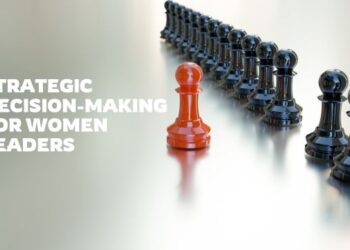Making decisions can be challenging, especially when faced with complex choices. Balancing intuition and analysis is key to effective decision-making in today’s fast-paced world. Both approaches offer unique advantages; finding the right mix can lead to better outcomes. Let’s explore how to navigate this balance.
Understanding Intuition
Intuition is often described as a gut feeling or instinct. It’s that immediate understanding you get without analysing all the details. Many rely on intuition based on experiences, emotions, and subconscious cues.
Benefits
- Quick Decision-Making: Intuition enables rapid responses, especially in high-pressure situations. For instance, an experienced firefighter may instinctively know how to handle an emergency, relying on years of training rather than extensive analysis.
- Emotional Insight: Intuition often draws on emotions and past experiences, providing insights that raw data might miss. A manager might sense a team member is struggling even if their performance metrics look fine.
When to Trust Your Gut
While intuition can be a valuable asset, it’s not always reliable. It’s essential to know when to trust your gut. Situations where you have ample experience or expertise are ideal for relying on intuition. However, be cautious in unfamiliar territory. In these cases, it’s wise to combine intuition with analytical thinking.
The Role of Analysis
Analysis involves gathering data, evaluating information, and making decisions based on logical reasoning. This approach is systematic and can provide a solid foundation for decision-making.
Benefits
- Informed Choices: Analytical thinking minimizes risks by evaluating facts and trends. For instance, a business owner might analyze customer feedback to determine the best approach for product development.
- Clarity: Breaking down complex decisions into manageable parts simplifies the process and helps you assess various options more clearly.
When to Rely on Analysis
While analysis is crucial, it can also have limitations. Spending too much time on data in fast-moving situations can lead to missed opportunities. Therefore, knowing when to shift from analysis to intuition is essential. If time is of the essence, relying on your gut may be more effective.
Combining Both Approaches
The key to effective decision-making lies in combining intuition and analysis. Each method complements the other. While analysis provides a structured approach, intuition adds a layer of human insight. When these two elements work together, you can make more balanced decisions.
Create a Decision-Making Framework
To achieve this balance, establish a decision-making framework. Start by outlining your goals. What do you want to achieve? Next, gather relevant data. Analyze this information to identify possible options.
Overcoming Biases
Both intuition and analysis are susceptible to biases. Intuitive decisions may be influenced by emotions, leading to irrational choices, while analytical decisions can suffer from overconfidence in data or misinterpretations.
Strategies to Minimize Bias
- Self-Reflection: Regularly assess your thought processes. Ask questions like, “Am I allowing emotions to cloud my judgment?” or “Am I relying too heavily on data?”
- Seek Diverse Perspectives: Encourage feedback from colleagues to gain different viewpoints. Collaboration can help counteract individual biases and lead to more well-rounded decisions.
Building Decision-Making Skills
Practice Mindfulness
Developing a balance between intuition and analysis requires practice. Mindfulness techniques can help improve your decision-making skills. By being present and aware of your thoughts and feelings, you can better recognize when to rely on intuition and when to analyze data.
Continuous Learning
Engage in continuous learning to enhance both your intuitive and analytical skills. Read widely, take courses, and expose yourself to new experiences. The more knowledge you have, the more informed your intuition becomes. This knowledge base also improves your analytical skills, allowing you to evaluate data more effectively.
Embrace Feedback and Reflection
After making decisions, reflect on the outcomes. What went well? What could have been better? Seek feedback from trusted colleagues or mentors. This practice strengthens your decision-making skills and helps you learn when to trust your gut and when to lean on analysis.
Conclusion
Effective decision-making is not just about numbers or gut feelings; it’s about integrating both. Trust yourself, stay open to learning, and embrace the process. With practice, you’ll become adept at balancing intuition and analysis, leading to smarter, more informed decisions in every aspect of your life.





